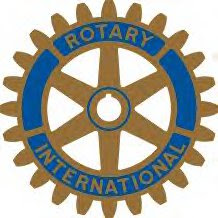 The guest speaker at the May 2009 breakfast meeting was Mr. Thomas Kirk McBride, the Deputy Political Counsellor of the United States Mission to the United Nations (right). He has spent twenty years at the US Mission to the United Nations and his main responsibility is to represent the interests of the United States with the issues connected with the Security Council. The meeting was moderated by Sheila Washington (left) a management consultant, and a member of the the Rotary Club of New York.
The guest speaker at the May 2009 breakfast meeting was Mr. Thomas Kirk McBride, the Deputy Political Counsellor of the United States Mission to the United Nations (right). He has spent twenty years at the US Mission to the United Nations and his main responsibility is to represent the interests of the United States with the issues connected with the Security Council. The meeting was moderated by Sheila Washington (left) a management consultant, and a member of the the Rotary Club of New York.Mr. McBride noted that the foreign policy that United States does not change very much with different Presidential administrations. Perhaps, the only minor difference may include some additional funding for birth control methods, for example. However, he said, it should be noted that the world has celebrated President Obama's election, particularly in African countries where the citizenry was so elected that one would think that President Obama was elected as President of the African Union.
Similarly, President Obama's administration elevated the new US Ambassador to the United Nations, Susan Rice, to a Cabinet-level position. While this has been the case in some other administrations, it is indicative of the level of importance that the new administration places on diplomacy, and the complexed issues facing the United Nations.
Our guest speaker stated that his position is dealing with the issues of the Security Council where some of the the major concerns are Peacekeeping operations, Non-proliferation of nuclear weapons, and Accelerating global climate change.
Regarding United Nations Peacekeeping missions there are eighteen ad-hoc missions now being supported with over 92,000 troops serving around the world. He explained that before the Bosnia peace keeping missions of the 1990's, the troops maintained an "established peace". However, since Bosnia, many of the peacekeeping forces have been involved in situations with significantly more combat.
The United States funds about twenty-six percent of all the peacekeeping missions and there is a $7 billion in the budget. However, the United States and the European Union supply less than five percent of the solders, with the largest percentage of solders coming from Pakistan and India. The United Nations reimburses the local governments that supply the troops at $1,040 per month, per soldier. In addition, the troops also receive significant training and additional funding for uniforms and equipment. Many developing countries find that they benefit financially from providing the troops.
The most difficult areas for the United Nations were the United Nations Operation in Somalia, (UNOSIM) Congo, and the Sudan. As such, the United Nations African Union Mission in Darfur (UNAMID) had recently been established.
It is important to recall that Chapter 8 of the UN Charter states that regional organizations should handle regional problems, but the African Union has not been successful.
As such, the AU and UN has formed an umbrella relationship to establish peace in these troubled regions.









